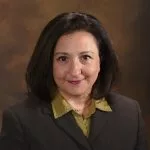Home » New Approvals for TMS
New Approvals for TMS
November 1, 2018
From The Carlat Psychiatry Report
Talia Puzantian, PharmD, BCPP
Chris Aiken, MD
Drs. Puzantian and Aiken have disclosed that they have no relevant financial or other interests in any commercial companies pertaining to this educational activity.
We know that transcranial magnetic stimulation (TMS) works for treatment-resistant depression (TRD) (see TCPR July/August 2017 for our most recent coverage), but one disadvantage is the length of the treatment sessions. We also don’t know if TMS works for other disorders.
Recently, the FDA granted new approvals that address both these issues. One approval was for “Express TMS,” a rapid form of TMS for depression that reduces the treatment time from 20–38 minutes to 3 minutes. The other approval was for using TMS in OCD.
The approval for Express TMS was based on a randomized non-inferiority study that showed its efficacy was similar to traditional TMS. Express TMS works faster because it uses a high-intensity magnet that produces something called “intermittent theta burst stimulation (iTBS).” It sounds a little scary, but the treatment was generally well-tolerated, though it did cause a bit more scalp pain than the lower-intensity magnet. The main risk with TMS is seizures, and we don’t yet know if this risk will be greater or lower with Express TMS because the frequency of these events is too rare to capture in a single study. Like standard TMS, Express TMS requires treatment sessions every weekday for 6 weeks.
The OCD indication was based on a randomized, sham-controlled multicenter trial of 100 adults with OCD. Response rates were 38% with TMS vs 11% in the sham group, and the number needed to treat to see response (NNT) was 4. Responses were maintained 1 month after treatment ended. Patients continued their usual medications during TMS. Side effects were limited to headaches.
Each of these approvals is tied to a specific manufacturer. Express TMS is available through an upgrade to the MagVita device, made by MagVenture. TMS for OCD requires a modification to Brainsway’s Deep TMS machine, which has been approved for TRD since 2013. To modify the machine for OCD, a magnetic coil is attached to aim the magnet at the anterior cingulate cortex—the brain region thought to be involved in OCD. Patients are directed to conjure their obsessive thoughts prior to each 20-minute treatment, which activates that brain region and improves response.
The diagnostic reach of TMS is expected to grow in the future. It is being investigated for schizophrenia, PTSD, anxiety, addictions, autism, migraines, chronic pain, dementia, and Parkinson’s disease.
General PsychiatryRecently, the FDA granted new approvals that address both these issues. One approval was for “Express TMS,” a rapid form of TMS for depression that reduces the treatment time from 20–38 minutes to 3 minutes. The other approval was for using TMS in OCD.
The approval for Express TMS was based on a randomized non-inferiority study that showed its efficacy was similar to traditional TMS. Express TMS works faster because it uses a high-intensity magnet that produces something called “intermittent theta burst stimulation (iTBS).” It sounds a little scary, but the treatment was generally well-tolerated, though it did cause a bit more scalp pain than the lower-intensity magnet. The main risk with TMS is seizures, and we don’t yet know if this risk will be greater or lower with Express TMS because the frequency of these events is too rare to capture in a single study. Like standard TMS, Express TMS requires treatment sessions every weekday for 6 weeks.
The OCD indication was based on a randomized, sham-controlled multicenter trial of 100 adults with OCD. Response rates were 38% with TMS vs 11% in the sham group, and the number needed to treat to see response (NNT) was 4. Responses were maintained 1 month after treatment ended. Patients continued their usual medications during TMS. Side effects were limited to headaches.
Each of these approvals is tied to a specific manufacturer. Express TMS is available through an upgrade to the MagVita device, made by MagVenture. TMS for OCD requires a modification to Brainsway’s Deep TMS machine, which has been approved for TRD since 2013. To modify the machine for OCD, a magnetic coil is attached to aim the magnet at the anterior cingulate cortex—the brain region thought to be involved in OCD. Patients are directed to conjure their obsessive thoughts prior to each 20-minute treatment, which activates that brain region and improves response.
The diagnostic reach of TMS is expected to grow in the future. It is being investigated for schizophrenia, PTSD, anxiety, addictions, autism, migraines, chronic pain, dementia, and Parkinson’s disease.
KEYWORDS brain_devices news_of_note


Issue Date: November 1, 2018
Table Of Contents
Recommended
Newsletters
Please see our Terms and Conditions, Privacy Policy, Subscription Agreement, Use of Cookies, and Hardware/Software Requirements to view our website.
© 2026 Carlat Publishing, LLC and Affiliates, All Rights Reserved.


_-The-Breakthrough-Antipsychotic-That-Could-Change-Everything.webp?t=1729528747)



